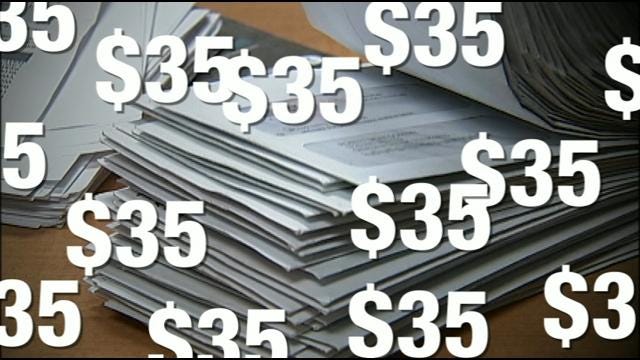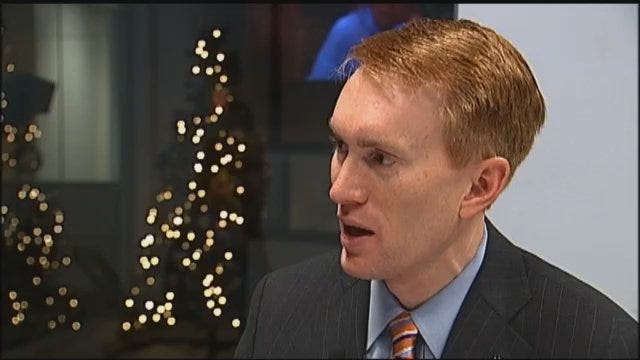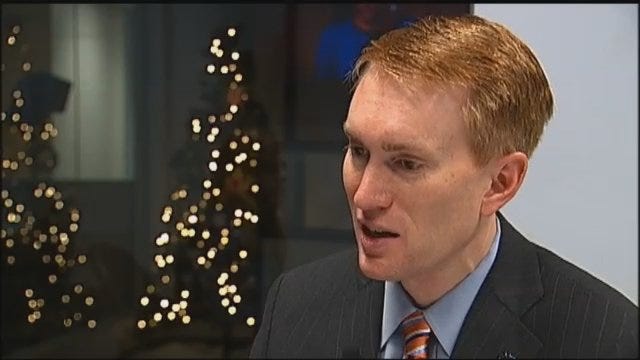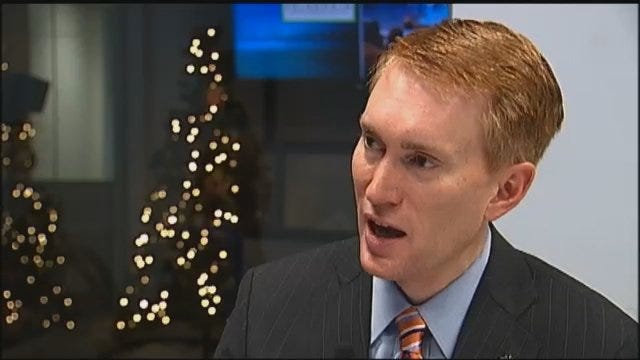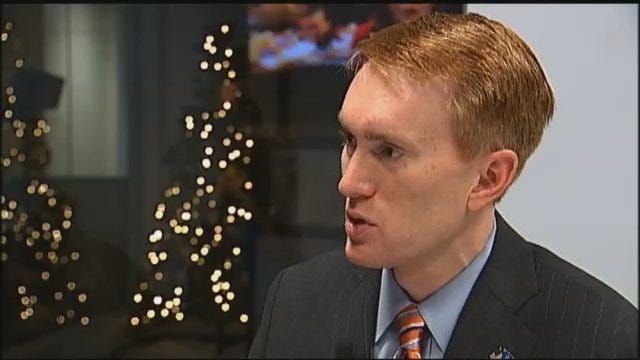Despite Reforms, Federal Cell Phone Program Still Plagued By Fraud
Our 6 Investigates team went undercover last October and exposed the problems with Lifeline. The federal agency that runs the program has promised reforms, but it may actually be getting worse.Monday, February 11th 2013, 10:42 pm
If you pay a phone bill, you're paying for a program that's losing millions each year to waste, fraud and abuse.
Our 6 Investigates team went undercover last October and exposed the problems with Lifeline, a federal program that provides cell phones to low-income Americans.
The federal agency that runs the program has promised reforms, but a visit to an Oklahoma homeless shelter showed how it may actually be getting worse.
At the Homeless Alliance of Oklahoma City, the homeless are well connected. Every day, cell phone companies set up across the street, giving away free phones to low- or no-income people, who sign up for Lifeline, a federal program meant to help those in need.
"Getting a phone is like a breath of fresh air," said shelter visitor Mike.
But the agency providing the phone service has rules to prevent the waste of taxpayer dollars—rules that are backed by law. Those rules are blatantly broken here.
10/25/2012 Related Story: Oklahoma Is Ground Zero For Government Cell Phone Fraud
For example, cell phone companies aren't supposed to give people more than one phone.
One shelter visitor, Gretchen said she's on her eighth free phone since April.
Gretchen is chronically homeless. She said she's never had a problem getting multiple phones. When she wants one, she just goes across the street and gets it.
A formerly homeless man, who didn't want to be named, showed us his duffle bag full of phones, and said he has another bag just like it at home, for a total of more than 20 phones collected in the last year.
"Yeah, those are all government phones," he said.
In fact, he said he now has a home because of the money he's made selling the phones on the streets.
"I just find somebody that needs a phone, that don't have a phone, and I sell it to them for about 10, 15, 20 bucks," he said.
Not only is it against the rules for companies to give him more than one phone, it's also against the rules to sign people up for the phones without proof they qualify, but that has never stopped him.
"I just go and use a fake name or use my name and just give them what they need, and if I can't give it, then I go to the next one," he said.
He said he's usually able to get one somewhere, without showing photo ID or a food stamp card.
This is the most blatant and costly abuse of the Lifeline program we have seen, and it's happening after the program was reformed by the feds. It seems the abuse has gotten worse, not better.
1/23/2013 Related Story: Oklahoma Lawmaker To Propose Bill Cutting Down On Fraud In Lifeline Program
And the Lifeline bills are stacking up at the homeless shelter. The shelter gets 75 to 200 bills every single day, said Homeless Alliance Director Dan Straughn.
When a person signs up for Lifeline, they agree to pay a small portion of the overall bill, usually $1 or $2 a month.
Straughn said he's not aware of anyone ever paying the bills.
"Not to my knowledge. No one ever even picks them up, because there's no point in it. You just toss your old phone and get a new phone," Straughn said.
And for every one of these bills, the government pays cell phone companies $35 a month; more in Oklahoma than any other state.
That adds up. In 2011, there were 369,000 Lifeline subscribers in Oklahoma, paying cell phone companies almost $122 million in government subsidies.
Preliminary numbers show the number of subscribers more than doubled in 2012, paying those companies $236 million, and that's after the so-called reforms.
Most of the homeless people we spoke to don't understand how the Lifeline program works or who pays for their phones, and at least for some, it doesn't matter.
"It's free. There ain't no catch to it. Who cares?" said the formerly homeless man.
It's a scenario that infuriates even the most empathetic of taxpayers.
"That's you and I paying that 35 bucks a month," Straughn said. "And again, good idea in concept, flawed in execution."
2/5/2013 Related Story: Oklahoma Corporation Commission Investigating Abuse Of Lifeline Program
Oklahoma paid more Lifeline subsidies to cell phone companies than any other state last year.
There are 800,000 free Lifeline phones in the state, enough for one-in-five Oklahomans. There are so many, they may have to add another Oklahoma area code.
We took our findings to Oklahoma Congressman James Lankford, who said he'll bring it up on Capitol Hill, but made no promises because of the many other issues Congress is facing.
More Like This
February 11th, 2013
January 2nd, 2025
Top Headlines
May 19th, 2025




